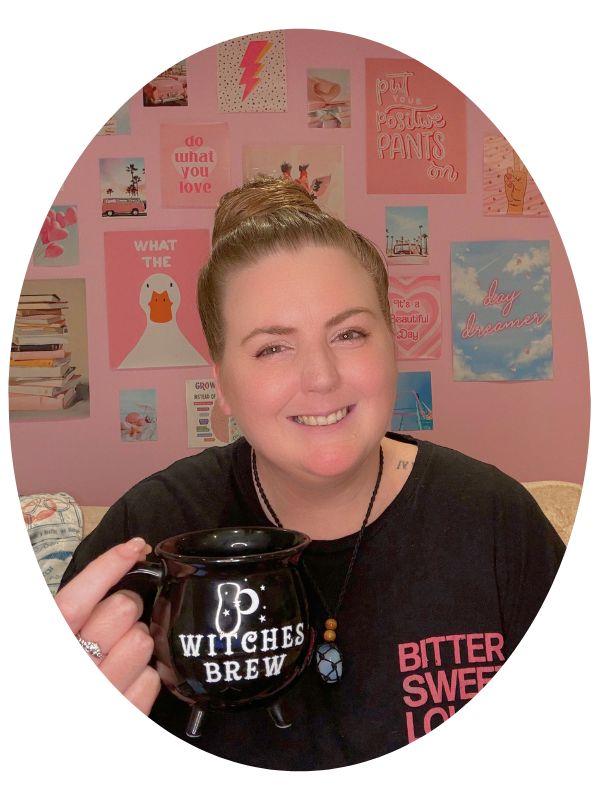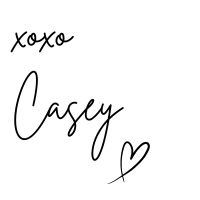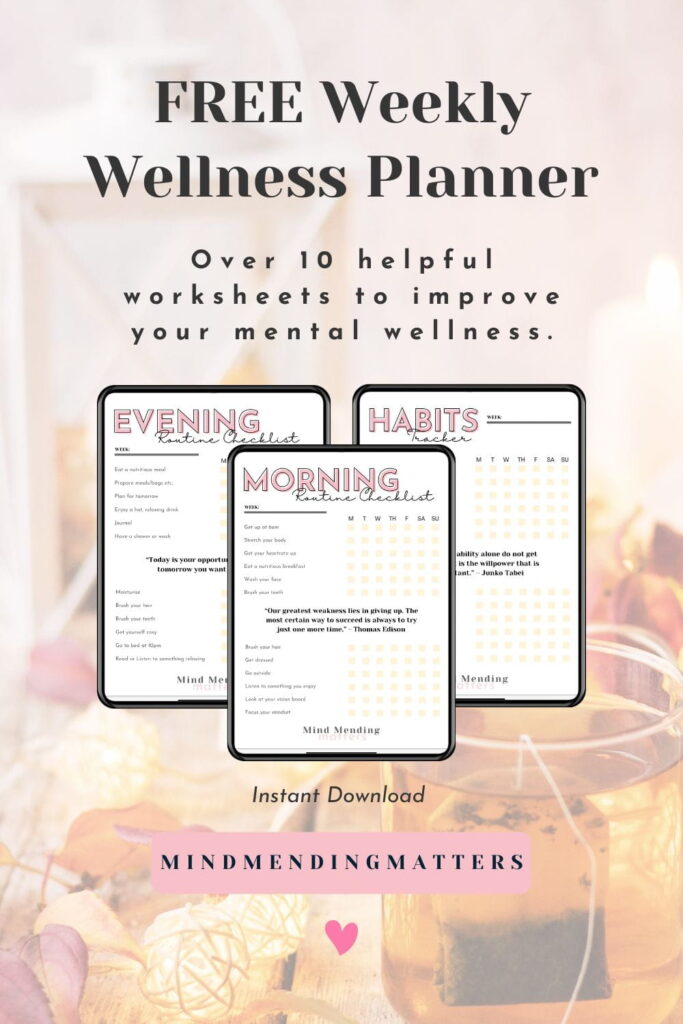Do you ever feel like the weight of your past is still holding you back? Like no matter how much time passes, the wounds from emotional trauma and abuse still sting, keeping you from fully stepping into the life you deserve. Whether it’s growing up in a dysfunctional family, enduring toxic relationships, or living in survival mode just to feel loved, those scars can run deep.
But here’s the truth: healing is possible. Journalling is a simple but powerful tool that allows you to confront your pain, release the hurt, and begin creating a new path forward. By reflecting on your past, you give yourself permission to heal and reclaim your power. And even though some scars may never completely fade, there is hope for a life filled with joy, self-love, and resilience.
If you’re ready to start that journey, these journal prompts for healing from the past will gently guide you through processing your pain, discovering your inner strength, and learning to forgive—both yourself and others. Whether you’ve been feeling stuck or struggling to let go, you don’t have to do it alone. Let this be your safe space to finally begin healing.
To help you on this journey, I’ve put everything you need into this FREE Guided Healing Journal to enable you the space and support to succeed. This book contains all 30 journal prompts for healing from the past with two pages of space for writing (or you can print as many as you like!) PLUS additional tips, tools and resources to help you heal from and thrive. Working through these prompts can be transformative, and the printable guide allows you to take it at your own pace, reflecting and growing as you go.
The Power of Journaling in Healing Emotional Trauma
Journaling has the unique ability to connect us with our deepest thoughts and emotions, giving us the space to express what we’ve often kept locked inside. I know firsthand how the trauma of an angry, dysfunctional family and toxic relationships can leave lasting scars. The pain can feel overwhelming, and the emotional wounds often cut deeper than the physical ones. They can impact your sense of self-worth, your relationships, and your overall mental well-being for years to come.
But healing is possible. And journaling is one powerful step in that journey. By putting pen to paper, you create a safe space to process your thoughts, face your emotions head-on, and begin to untangle the painful memories that still hold you back.

Busy bee??… pin me for later!
Why Journaling is So Powerful for Healing from Emotional Trauma
When we’ve been through emotional abuse or trauma, our brains can get stuck in survival mode. This keeps us in a cycle of fear, self-doubt, and sometimes even self-blame. Journaling acts as a release valve, helping to ease that tension by allowing us to confront and process our feelings.
Here are a few reasons why journaling is so effective in healing from emotional trauma:
- It promotes self-awareness: Writing down your thoughts helps you become aware of emotional patterns, triggers, and unresolved pain. Once you see it on paper, it’s easier to recognise areas in your life that need healing.
- It provides emotional release: Bottling up emotions is a common defence mechanism, but journaling provides a safe outlet. It gives you permission to feel and express without judgment.
- It helps reframe your narrative: When you’ve been hurt, it’s easy to internalise those experiences and believe that you’re somehow responsible. Journaling allows you to rewrite the narrative, showing that you are a survivor, not a victim and that your past does not define your future.
- It aids in self-compassion and forgiveness: Emotional trauma can often make us feel unworthy or stuck in cycles of self-blame. Journaling helps you cultivate self-compassion and, over time, supports forgiving yourself and others.
But let me be clear: Journaling is not a replacement for professional therapy or support. It’s a complementary practice. If you’re really struggling, it’s important to reach out for help from a therapist, counsellor, or support group. And if therapy isn’t an option for you right now, journaling can be a way to bridge the gap until you’re able to access that support.
How to Approach These 30 Journal Prompts
I’ve put together 30 journal prompts specifically designed for healing from the past. You can approach them as a 30-day challenge or take them at your own pace—whatever feels best for you. This practice can be emotionally draining at times, so don’t hesitate to take breaks. Healing is a marathon, not a sprint. Make sure you have a support system in place, whether it’s a friend, partner, or an online group. And if you ever feel completely alone in this, know I’m here for you. You can reach out to me anytime through my Ask Casey advice column or send me an email.
30 Journal Prompts for Healing From the Past
This set of prompts is designed to take you on a journey from self-discovery, to acceptance, to forgiveness, and eventually toward building a brighter, more fulfilling future. Take your time with each prompt, allowing yourself to fully engage with the emotions that arise.
1. What is one memory from your past that still feels unresolved? Describe it in detail.
Guidance: Think about a moment that continues to weigh on your heart. What emotions come up when you recall it? Write down everything you remember—the sights, sounds, and feelings. Don’t worry about “getting it right,” just let your emotions flow.
2. How has your past trauma affected your self-esteem?
Guidance: Consider the ways your trauma has shaped the way you see yourself. Do you feel confident in who you are, or do doubts creep in? Reflect on how these experiences have impacted your self-worth.
3. What negative beliefs about yourself stem from your past experiences?
Guidance: Dive into the harmful stories you may have told yourself based on how others treated you. Do you believe you’re unworthy, unloved, or not enough? Gently challenge those beliefs and explore where they came from.
4. In what ways have you tried to numb or avoid the pain from your past?
Guidance: We all have coping mechanisms, some healthy and some not. Think about the ways you’ve tried to distract yourself from the pain—whether through work, relationships, or other means. How has this affected your healing?
5. What emotions surface when you think about your family relationships growing up?
Guidance: Family dynamics often leave lasting marks on us. What feelings rise to the surface when you think about your childhood? Anger, sadness, confusion? Allow yourself to explore these emotions without judgment.
6. Describe a toxic relationship you’ve been in. How did it impact your sense of worth?
Guidance: Write about a relationship where you felt devalued, manipulated, or hurt. How did this person make you feel about yourself? Reflect on the ways it affected your self-esteem or boundaries.
7. What lessons did you learn from that relationship?
Guidance: Now that you’ve had time to reflect, what have you learned from that toxic experience? Did it teach you about red flags, boundaries, or what you deserve in a relationship?

8. What do you need to forgive yourself for?
Guidance: Think about the times when you’ve been hard on yourself. Is there something you’re still blaming yourself for? Explore how you can offer yourself compassion and begin letting go of that guilt.
9. Write a letter to your younger self, offering the support and love you wish you’d had.
Guidance: Imagine your younger self is sitting in front of you. What would you say to comfort them? What do they need to hear? This is your chance to offer the love and encouragement you needed back then.
10. Who in your life has caused you pain? What would you say to them if you had the chance?
Guidance: Without intending to send it, write an open and honest letter to the person who caused you the most pain. What would you say if there were no consequences? Let it all out on paper.
11. What are the most painful words someone has said to you, and why do they still hurt?
Guidance: Sometimes, words can cut deeper than actions. Reflect on a phrase or comment that still lingers in your mind. How has it affected your confidence, beliefs, or the way you see yourself?
12. How have your past experiences shaped your relationships today?
Guidance: Think about your current relationships—whether romantic, platonic, or familial. Do patterns from your past still influence how you connect with others? Explore those connections.
13. What fears or insecurities do you carry as a result of your trauma?
Guidance: Trauma often leaves behind lingering fears. Are you afraid of being abandoned, rejected, or hurt again? Identify those fears and consider how they might show up in your life today.
14. How does anger or resentment still show up in your life?
Guidance: Think about situations that trigger feelings of anger or resentment. Do you notice certain patterns? Write about how these emotions arise and what might be beneath them.
15. Write about a time when you felt powerless or out of control. How can you reclaim that power?
Guidance: Recall a moment where you felt completely helpless. What emotions did you experience? Now, reflect on how you can take back control over your life and set stronger boundaries moving forward.
16. What habits or patterns have you adopted because of your trauma?
Guidance: Trauma can lead to certain behaviours—whether it’s being overly cautious, people-pleasing, or shutting down emotionally. What habits have you noticed in yourself, and how can you begin to change them?
17. What boundaries do you need to set to protect your healing?
Guidance: Healing requires boundaries, both with yourself and others. Think about where you need to say “no” more often or create space to protect your well-being. How can you start setting those limits?
18. How does your inner critic talk to you, and how can you start responding with kindness?
Guidance: We all have an inner voice that can sometimes be harsh. What does yours say? Reflect on how you can respond more gently to yourself and replace those criticisms with affirmations.
19. What parts of yourself have you been afraid to embrace because of your past?
Guidance: Trauma can cause us to hide parts of ourselves. Is there a side of you that you’ve kept hidden? What would it look like to fully accept and embrace that part of yourself?
20. Write about a time when you showed yourself compassion. What did it feel like?
Guidance: Think about a moment when you treated yourself with understanding and kindness. How did it feel? How can you bring more of that self-compassion into your life?
21. What would healing look like for you? Paint a picture of your ideal future self.
Guidance: Imagine the person you want to become once you’ve healed. How do they feel, think, and live? Write a detailed vision of your future self—someone who is whole, empowered, and at peace.
22. What does forgiveness mean to you, and who do you need to forgive (including yourself)?
Guidance: Forgiveness can be a complex process. What does it mean to you? Is there someone in your life you’re ready to forgive? Don’t forget to explore the importance of forgiving yourself as well.

23. Reflect on a moment when you felt at peace. How can you create more of those moments?
Guidance: Think about a time when you truly felt calm and at ease. What circumstances led to that feeling? Consider how you can create more opportunities for peace and relaxation in your everyday life.
24. What are three things you love about yourself that no one can take away?
Guidance: Celebrate the aspects of yourself that are unshakable—whether it’s your strength, kindness, or resilience. Write about those qualities and how they have helped you survive and grow.
25. What would you say to someone who is just starting their healing journey?
Guidance: Imagine a close friend is about to begin their own journey of healing. What advice, comfort, or encouragement would you offer them? Reflect on how you can apply that advice to yourself.
26. How do you feel about vulnerability? What fears does it bring up for you?
Guidance: Vulnerability can be scary, especially when you’ve been hurt in the past. What comes up for you when you think about being open with others? Explore those fears and how they’ve shaped your life.
27. What’s one positive lesson your trauma has taught you?
Guidance: While trauma is painful, it can also bring unexpected lessons. Think about what you’ve learned through your healing process—whether it’s about boundaries, strength, or self-love.
28. How can you begin to prioritise your needs and put yourself first?
Guidance: Healing requires self-care and putting your own needs first. Reflect on ways you’ve neglected yourself in the past and how you can start making yourself a priority moving forward.
29. Set three healing goals for the next six months. What do you want to achieve?
Guidance: Take a moment to think about your future. What does healing look like in the next six months? Set three realistic, compassionate goals for yourself—whether it’s practising more self-love or creating boundaries.
30. What would your life look like if you fully allowed yourself to heal and thrive?
Guidance: Envision a future where you’ve given yourself full permission to heal, grow, and thrive. What does that life feel like? Write about the joy, peace, and fulfilment you see on the horizon.
Building a Life Beyond Your Healing Journey
Healing is not an overnight process—it takes time, patience, and grace. And while some scars may never fully disappear, you are capable of living a healthy, happy, and fulfilling life. The final prompts are designed to guide you toward the future you deserve, focusing on goal-setting and allowing yourself the time to heal in a way that feels right for you.
Don’t forget to download the FREE 30-day Journal Prompt Guide HERE to help you stay on track with your healing journey. This book contains all 30 journal prompts for healing from the past with 2 pages of space for writing (or you can print as many as you like!) PLUS additional tips, tools and resources to help you heal from and thrive. Working through these prompts can be transformative, and the printable guide allows you to take it at your own pace, reflecting and growing as you go.
Conclusion: Healing Takes Time, and You Deserve It
Healing from emotional trauma is one of the hardest but most rewarding things you can do for yourself. Journaling can be a powerful part of that process, helping you to confront your past, release pent-up emotions, and eventually move forward with hope and confidence. And remember, you don’t have to go through this alone. If you need support along the way, please don’t hesitate to reach out to me through my Ask Casey advice column, email me at email, or connect with me on social media.
Take your time with this journey, and always know that you are worthy of healing, happiness, and joy. You’ve already taken the first step by being here today. Let’s walk this path together.
Read Next:
20 Warning Signs Of A Toxic Relationship You Need To Know
How To Cut Toxic People Out Of Your Life
Moving On from a Toxic Relationship: 15 Quotes to Help You Heal and Thrive













